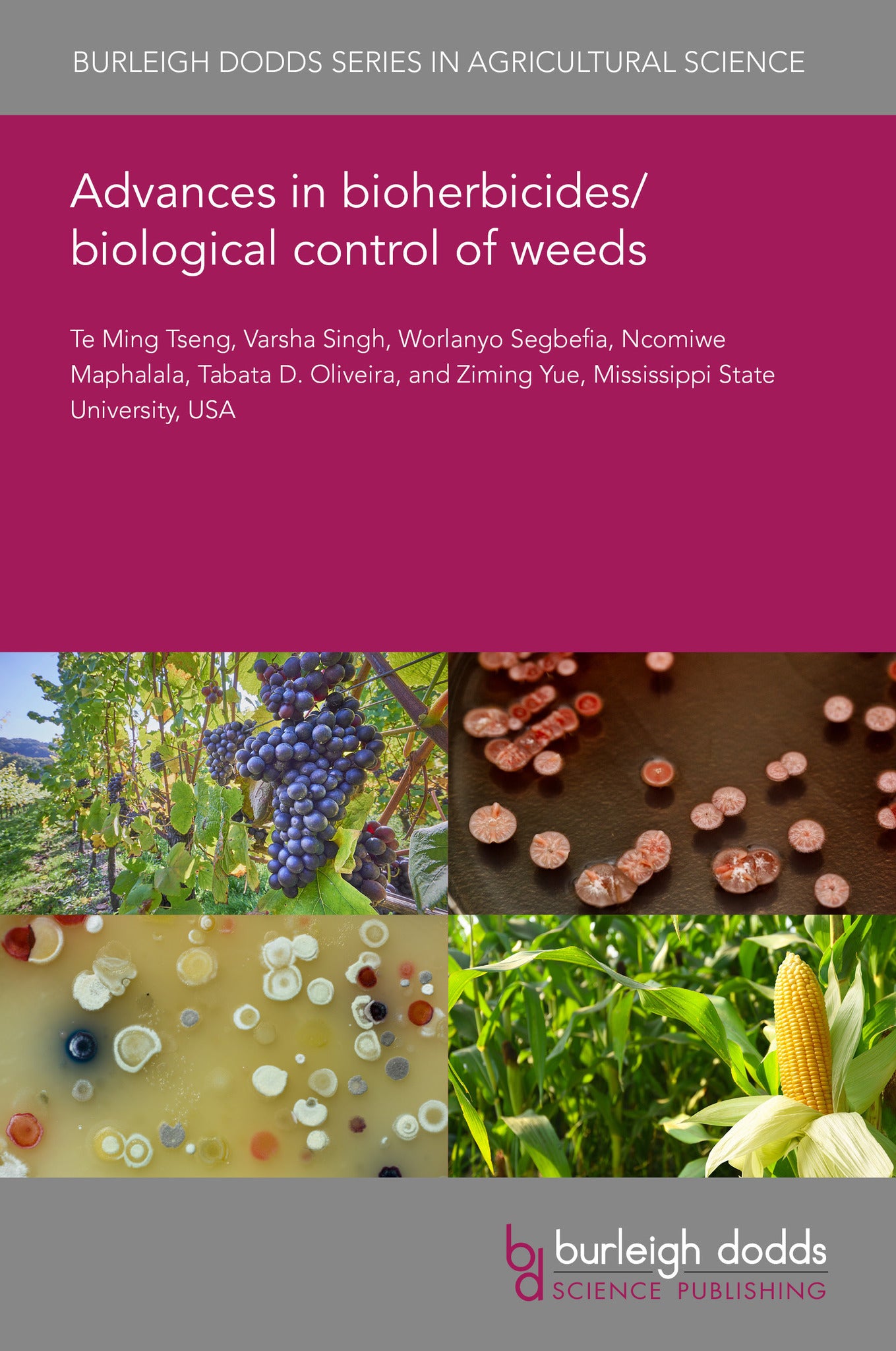We're sorry. An error has occurred
Please cancel or retry.
Advances in bioherbicides/biological control of weeds

Some error occured while loading the Quick View. Please close the Quick View and try reloading the page.
Couldn't load pickup availability
- Format:
-
07 August 2025

Weed control plays a critical role in crop production, but the overuse of synthetic herbicides has led to various problems such as chemical residue accumulation, herbicide resistance in weed species, and environmental concerns. To address these challenges, sustainable weed management strategies are being sought, and bioherbicides offer a promising solution. Bioherbicides present a sustainable alternative for weed control, reducing reliance on synthetic herbicides and promoting environmentally friendly approaches in agriculture. Further research and development are crucial to optimize the efficacy and commercial viability of bioherbicides, ensuring their successful integration into weed management programs and contributing to a more sustainable agricultural system. This review paper examines the potential of bioherbicides for sustainable weed control and discusses their effectiveness, advantages, and limitations.

TECHNOLOGY & ENGINEERING / Pest Control, Pest control / plant diseases, TECHNOLOGY & ENGINEERING / Agriculture / Agronomy / Crop Science, TECHNOLOGY & ENGINEERING / Agriculture / Sustainable Agriculture, Sustainable agriculture, Agronomy and crop production, Botany and plant sciences

- 1 Introduction
- 2 Bioherbicides available in the market
- 3 Plant extracts as bioherbicides
- 4 Natural byproducts as bioherbicides
- 5 Allelochemicals as bioherbicides
- 6 Advantages of bioherbicides
- 7 Disadvantages of bioherbicides
- 8 Future trends
- 9 Future directions
- 10 Future research
- 11 Conclusion
- 12 Where to look for further information section
- 13 References



